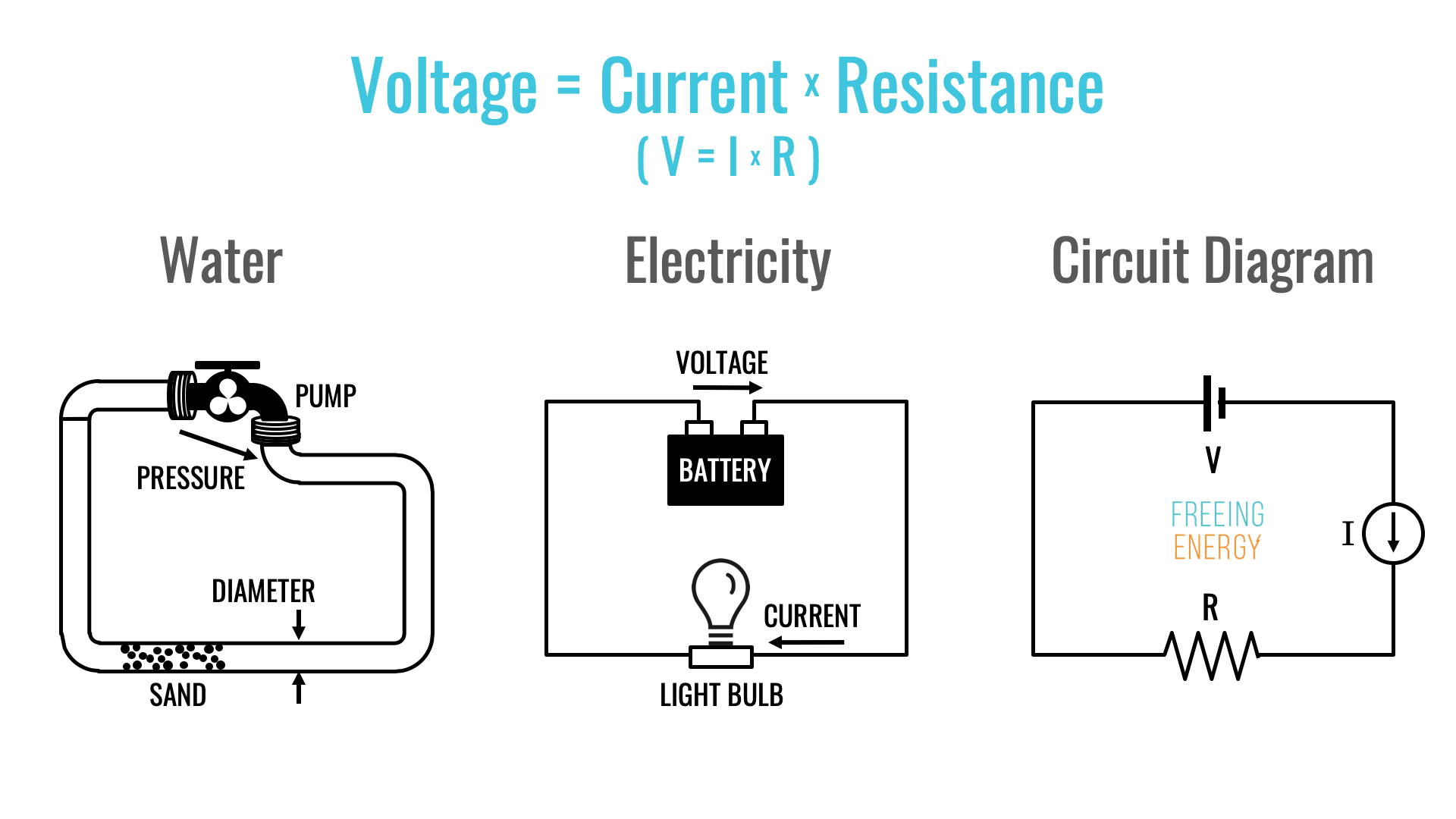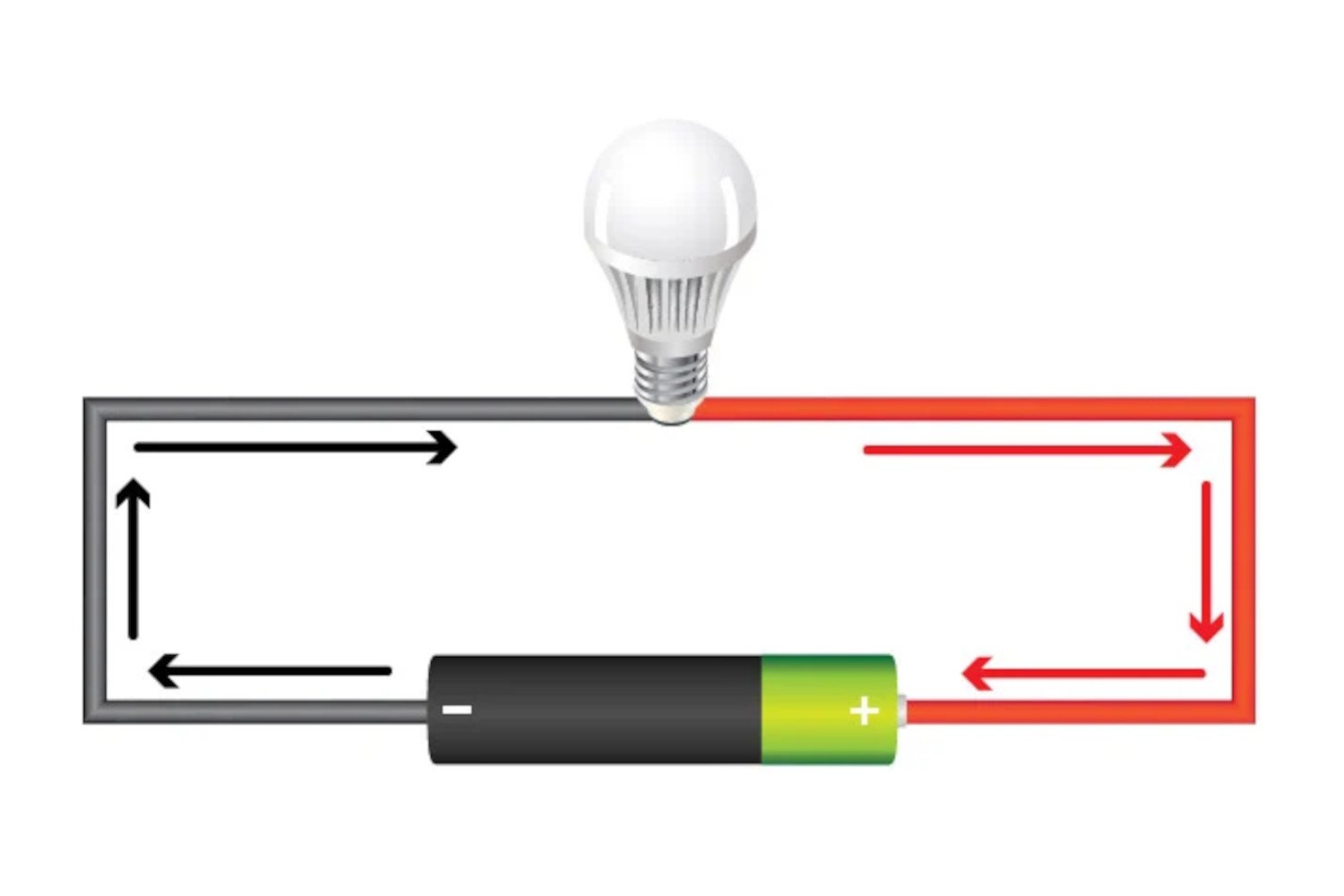What Is Another Phrase Used to Describe Voltage
Watt-hour Wh A unit of electrical energy equivalent to power consumption of one watt for one hour. Physicists and engineers even use the word dual to describe them.
The voltage or potential difference gives the force to the electrons to flow through the circuit.

. It is denoted by the letter V. The flowing of charge is called current. Components in the circuit allow us to control this charge and use it to do work.
It is equal to the work that would have to be done per unit. The higher the voltage the greater the force and hence the more electrons flowing through the circuit. Voltage and the term potential difference are often used interchangeably.
Resistance is the measure of the opposition to the flow of electric current in an electrical circuit. Stays the same 1. The greater the voltage the greater will be the current flow through that point.
During early days of electricity Voltage was known as Electromotive Force emf. The voltage is the electric potential between two points. In laymans terms it is the measure of push available to motivate the charge.
Voltage is often used as a shorthand term for voltage difference which is another name for potential difference. If a unit of electrical charge were placed in a location the voltage indicates the potential energy of it at that point. So lets start with voltage and go.
It is also referred to as electromotive force or electrical potential. Voltage can be either constant as in the case of DC power or varying as in the case of AC power. Voltage is a common term used to describe the potential difference.
In other words it is a measurement of the energy contained within an electric field or an electric circuit at a given point. Sometimes it is also known as electromotive force. Voltage also called electromotive force is a quantitative expression of the potential difference in charge between two points in an electrical field.
It prevents the battery from being overor undercharged during high - or low - speed. This duality raises its head in many places in the physical sciences. A system of water pipes is often used as an analogy to help people understand how these units of.
Potential difference might be better defined as the potential energy difference between two points in a circuit. Voltage is the measure of specific potential energy potential energy per unit charge between two locations. A circuit is a closed loop that allows charge to move from one place to another.
Voltage E An electromotive force or pressure that causes electrons to flow and can be compared to water pressure which causes water to flow in a pipe. Potential energy NOT force divided by electric charge. What is another word for voltage.
This is why in early formulas as Ohms Law voltage is represented by the symbol E. Voltage is also referred to as electric potential difference electric pressure or electric tension. Match the appropriate words to describe what happens under the following conditions when the physical load driven by an induction motor is increased.
Voltage current and resistance are the most common terminologies we hear in physics. VOLTAGE - That force which is generated to cause current to flow in an electrical circuit. Watt W A unit of electrical power.
Voltage is the dual of magnetism and magnetism is the dual of voltage. VOLTAGE REGULATOR - A device that controls the strength of a magnetic field produced by a generator or alternator. The difference in charge between higher potential and lower potential is called a voltage or potential difference.
There is no difference between the potential difference and voltage. Voltmeter A meter that is connected across the line to measure the potential difference voltage between two points. The term most frequently used to express the difference of potential between two charges or between two points of a circuit.
Ohm starts by describing a unit of resistance that is defined by current and voltage. Voltage as an expression of potential energy is always relative between two locations or points. The greater the voltage the greater the flow of electrical current that is the quantity of charge carriers that pass a fixed point per unit of time through a conducting or semiconducting medium for a given resistance to the flow.
Voltage is a representation of the electric potential energy per unit charge. Voltage is measured in volts V Current is measured in amps A Resistance is measured in ohms Ω Power is measured in watts W Electrical power or the wattage of an electrical system is always equal to the voltage multiplied by the current. Explain what this other name for voltage means.
In other words to find the current we need to divide the voltage by the resistance. Both are the same. Outlets and batteries both have voltages that are associated with them.
Voltage is measured in volts. Voltage measures the energy that a charge will get if it moves between two points in space. Voltage is also known by another name.
The unit for voltage is the volt V and 1 Volt 1 JC. Current is referred to as the flow of electric charge carriers. The amount of difference expressed in volts determines how much potential energy exists to move electrons from one specific point to another.
Voltage is also known as Electric Pressure Electric Tension or Electric Potential Difference. Sometimes it is called a voltage drop. It is denoted by letter V or E used for representing electromotive force.
In modern days it is represented by the symbol V or E. Electromotive force or EMF. Voltage electric potential difference electric pressure or electric tension is the difference in electric potential between two points which in a static electric field is defined as the work needed per unit of charge to move a test charge between the two points.
Doing the math 10 volts divided by 20 ohms results in. Georg Ohm was a Bavarian scientist who studied electricity.

How Voltage Current And Resistance Relate Ohm S Law

Understanding The Basics Of Electricity By Thinking Of It As Water

Understanding The Basics Of Electricity By Thinking Of It As Water

No comments for "What Is Another Phrase Used to Describe Voltage"
Post a Comment